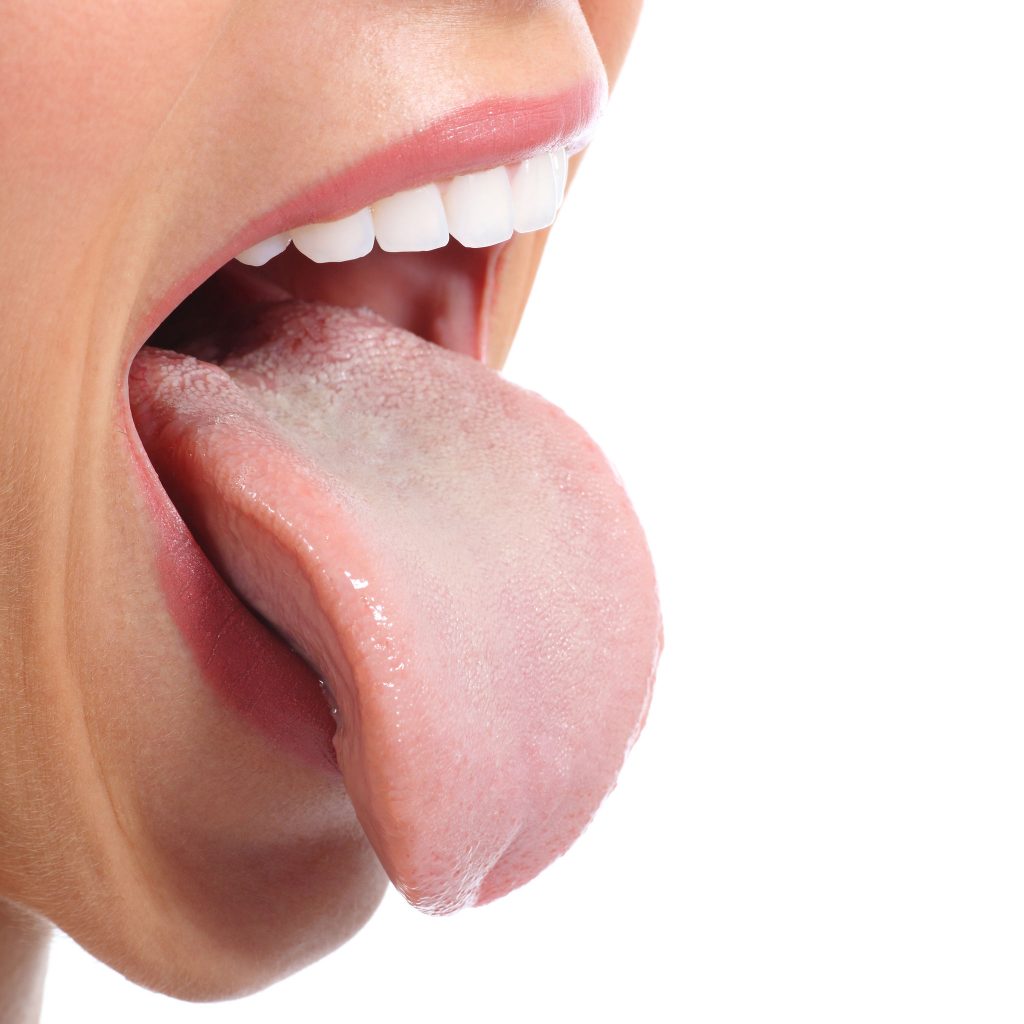
5 ways to self-examine for oral cancer:
- The Tongue ‘n Groove. Using a mirror, first, stick out your tongue and look for any unusual changes in bumps, lumps, or color. Most commonly darker spots. Move your tongue around from side to side to assess each surface. Next, touch the tip of your tongue to the roof of your mouth, as if making an “L” sound. This will help you examine the underside of your tongue and floor under the tongue. In a healthy mouth, these should be uniform in both texture and color.
- Raise the Roof. Similarly, examine the roof of your mouth. This can easily be done by using a mirror and or feeling with your tongue or fingertips. For optimal viewing, tilt your head back slightly, as if you were to gargle mouthwash. Next, inspect the roof of your mouth for discoloration or changes in texture.
- The Cheek Check. Graze your tongue or fingertip along the inside of your cheeks. Next gently pull cheeks outward for a visual inspection. If you notice white or red, dark-colored splotches, consult with your doctor. Finally, using a pinching motion, place your index finger inside and your thumb on the outside of your cheek. Squeeze to inspect the entire area for bumps or inflammation.
- Stay One Step “A-head” of Cancer. Standing and looking straight ahead, observe any abnormalities on both sides of your head and neck. If you notice any protrusion or unevenness of head or facial structure, consult with your doctor. Similarly, check your neck for anything out of the ordinary. Applying light pressure, slide your fingertips around your neck. If you experience any tenderness or signs of swelling, consult with your physician.
- Read Your Lips. While lips often change with the season, a severe change in lip color or texture can be a tell-tale sign that it’s time to visit your doctor to test for lip cancer. Because the lips are extremely sensitive to sunlight, it is important to apply an SPF lip balm or chap stick if you are in high levels of sun exposure.
Ways to prevent oral cancer:
- Kick butt and quit using tobacco
- Limit your alcohol consumption
- Eat a well-balanced diet of fruits and vegetables
- Avoid excessive sun exposure
Early detection is key. Take the time to perform routine checks, especially if you or someone you know has a family history of oral cancer. An oral self-assessment only takes a minute, but it may buy you a lifetime.
